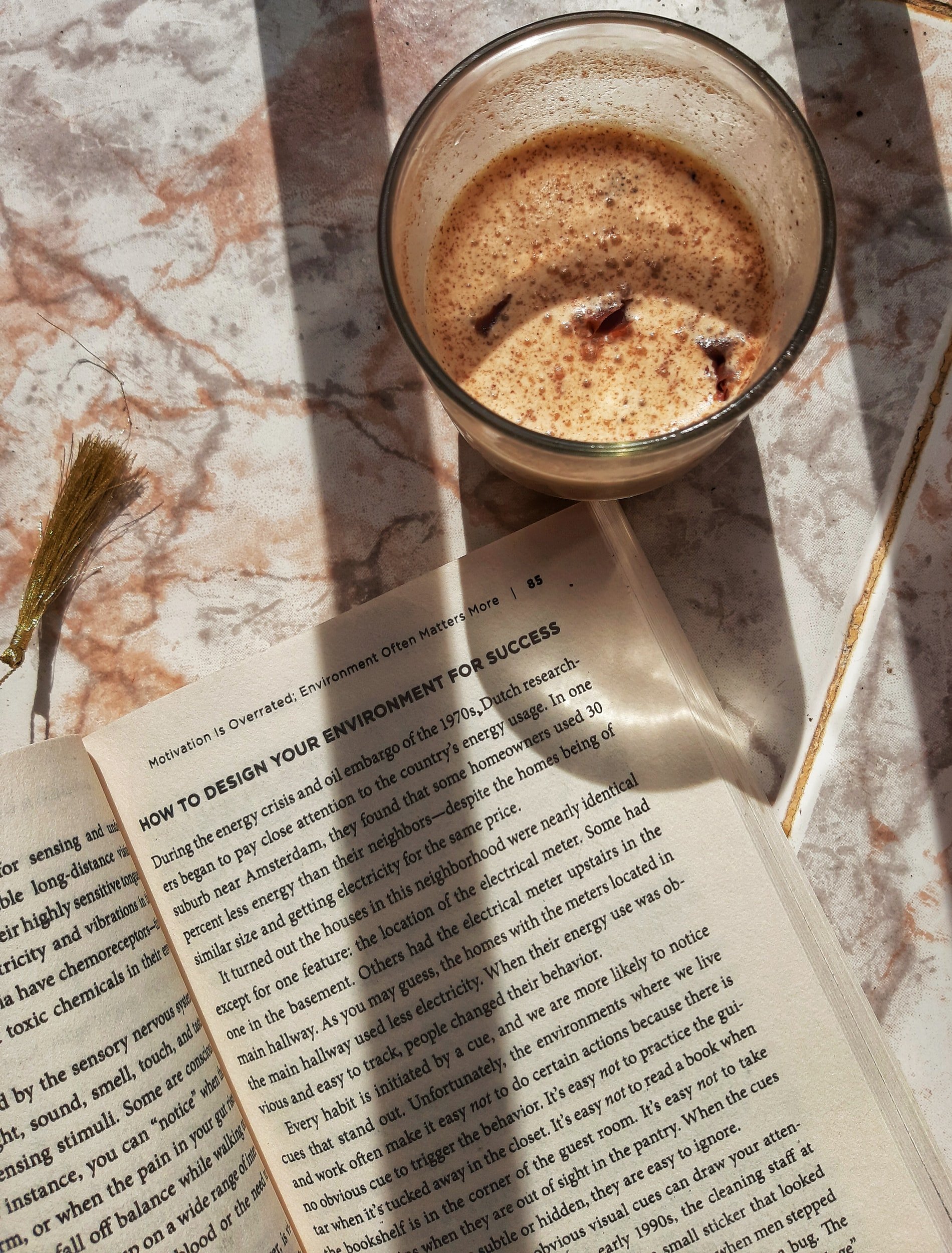Why are routines important?
Why are routines important?
Routines are important because, as human beings, we are creatures of habit. We thrive on structure and the sense of accomplishing daily tasks that we set out to do.
Studies show that the pandemic has left many people feeling displaced, and the structure we once had has shifted so rapidly because of the level of uncertainty.
A lack of structure can contribute to stress, anxiety, and depression, making the need to get back to a routine all that more important.
This is what I will cover in this article:
Why are routines so important?
Why do we struggle to stick to a good routine?
How to make your routine work for you.
Why are routines so important?
Routines ease anxiety
Routines reduce burnout
Routines ease anxiety.
Millions of adults suffer from anxiety worldwide. Creating predictable routines helps alleviate anxiety. By creating daily calming tasks, we allow our bodies and minds to adjust by knowing what to expect, which reduces fears over the unknown.
And with so much uncertainty and increased social anxiety since most countries started opening up again, the number is sure to have increased.
Routines reduce burnout
The gradual accumulation of underlying stress leads to burnout. Many adults who needed to adjust to working from home in the last couple of years struggled to separate their work from their home lives. Without a routine, the days would inevitably merge into one another.
Incorporating a routine that serves you and promotes feelings of calm and gratitude helps alleviate the burnout from the constant presence of stressors throughout the day.
Why do we struggle to stick to a good routine
Lack of Experimentation
We want results, fast
We make it difficult to start and stick with
Lack of Flexibility
Not enough hours in a day
Family and Social demands
Lack of experimentation
Without regular experimentation, there is no way to know what aspects of our daily routines work for us and which do not.
Perhaps you've read somewhere that stretching in the morning is good for you, so you've told yourself that you want to do that each morning when you wake up, only to find that you don't enjoy it. Many of us give up right there and then. Experimenting with alternative tools and at different times of the day can benefit us in the long run. More on what to experiment with later in the post.
We want results, fast.
"Making a choice that is 1 percent better or 1 percent worse seems insignificant in the moment, but over the span of moments that make up a lifetime, these choices determine the difference between who you are and who you could be. Success is the product of daily habits—not once-in-a-lifetime transformations." - James Clear. "Atomic Habits".
As James Clear says in the quote above, we are the product of all the tiny things we choose to do (and not to do) every day.
When we start a new habit and are excited at the prospect of all the benefits we can get from it, we tend to get discouraged when things don't change fast enough. Yet, all our good (and bad) habits compound with time. This brings me to my next point.
We make it difficult to start and stick with
When we decide to start a new routine from scratch, we begin with the end goal. We want to start running. We want to start meditating.
What would make this simple for you to begin?
It would help if you made it easy and created a cue with which your brain will associate the new habit you are trying to form.
E.g., I set out a cozy blanket on the couch before bed which I want to wrap around when I meditate in the morning (cue). Although my end goal might be 20minutes a day, I start with 3 minutes a day (easy).
Lack of flexibility
As with anything in life, it's essential to cultivate the ability to be flexible.
The same goes for a routine. There might be some things in your routine that you know is critical to kickstarting your day or easing out of it. For me, that's a morning meditation - even on unpredictable days, I incorporate at least 5 minutes in the morning.
Ask yourself
What would benefit me right now?
How much time do I have?
Not enough hours in a day
The lack of time is a common struggle for most. Time has a way of eliciting a sense of urgency within us.
We tend to want to squuuuuze in a workout or squuuuuze in a meditation. The rush of life can pull us away from enjoying the present moment (regardless of how short or long it may be) that we've cultivated for ourselves.
Reflect on these questions:
What am I making time for in my day?
What could I spend less time doing?
What can I spend more time on that would benefit my mental and physical wellbeing?
Family and societal demands
Starting a family, nurturing, and being present with them is a mammoth task on its own (I imagine).
Building connections, nurturing friendships, and connecting with people is another one.
Where does that leave you?
Striking a balance between me-time and family/connection time is difficult.
It can feel like you are filling everyone else's cup but your own.
It brings me back to a question I asked a little earlier in this article.
What are you making time for?
Be honest in your answer. Are you spending the first few minutes of your day scrolling through social media?
What can you spend less time doing?
Whatever your answer to this question is, allow yourself to take five minutes from there and gift it to yourself.
How to make your routine work for you
Making your routine work for you is important, because each one of us thrives differently. My definition of calm, may be different to yours.
Set the tone for your day
Set limits with your phone
Take micro-breaks
Breathe
Adapt when things change or during stressful times
Set the tone for your day
What do you gift your body and mind with at the start of your day?
How we choose to start the day can set the tone for the rest of it.
If we start the day in a rush, without thinking about our intention for it and without checking in with ourselves - we can't expect to show up calmly?
Set limits with your phone
When I would sleep with my phone in our room, I would start the day with an influx of notifications and be flung into the virtual reality of social media.
Now, I do my utmost best (no one is perfect) to stay off my phone for the first hour of my day.
I then use it to meditate, and on most mornings, I add a 10-30minute at-home yoga practice.
Of course, this means waking up a little earlier.
If that's no option for you, skip the yoga in the morning but I highly recommend a short meditation or deep breathing.
Be intentional
Be intentional with your screen time as much as possible.
I try to notice when I reach for my phone and how often I scroll mindlessly through social media throughout the day.
It gives me insight into what I avoid or want to escape from - usually, that's a clue for some change and reflection.
Take micro-breaks
Short breaks of five minutes or less can be an effective energy management tool. Researchers have found that regular microbreaks contributed to higher work engagement during the day and lower end-of-work fatigue.
Imagine what that would do to the amount of presence you have for family and friends?
It can be as simple as mindfulness meditation (you can find some of my favorites in this blog post), a short stretch, a simple gratitude practice, or simply enjoying your surroundings and taking in some fresh air.
Breathe
Our breath is a tool that is available to us right now, at this moment. Yet, we overlook the importance and benefits of breathing intentionally. It's been scientifically proven to affect the heart, brain, digestion, and immune system.
Pranayama, referred to as 'breath work' in India, is a tool that's been used for thousands of years to affect the mind and body in positive ways.
One of my favorite breathing techniques is the 4,7,8 breathing technique or I simply take three very deep belly breaths in through the nose and out the mouth.
Adapt when things change or during more stressful times.
The reflex during stressful times is to skip all the good stuff.
There's seems to be zero time for stillness.
What I have learned to do is adapt to the situation by asking myself these questions:
How much time can I gift myself today?
What would bring me the most calm?
What is the minimum amount of time I can dedicate to these things?
If you choose to fit in a five-minute meditation and a few deep breathes or a short five-minute yoga sequence each day for a week, it works out to much more in the long run.
I will leave you with these three questions to reflect and/or journal on:
What are you prioritizing each day?
What can you start dedicating less time to?
What can you start dedicating more time to?
Incorporating an intentional routine using tools that bring you joy can be one of the single most important things you gift yourself today.
Here's an old zen quote I love to refer to:
"you should sit in meditation for 20-minutes a day, unless you are too busy then you should for an hour"
It implies that the busier or more stressed we are, the more time we need to recenter and breathe to cope with the stresses.
Humans beings were not made to function at the high-stress levels that most of us face every day.
If there is anything we can do in our control to reduce its impact on our bodies and minds, we owe it to ourselves to try.
Has this article resonated with you? I would love to hear from you in the comments section below.
Resources for additional reading:
Study: Regularizing daily routines for mental health during and after the COVID-19 pandemic
Article: Why routines are important for your mental health
Article: The Mental Health Benefits of Having a Daily Routine
Article: The Surprising Benefits Of ‘Microbreaks’ For Engagement, Productivity And Career Success







